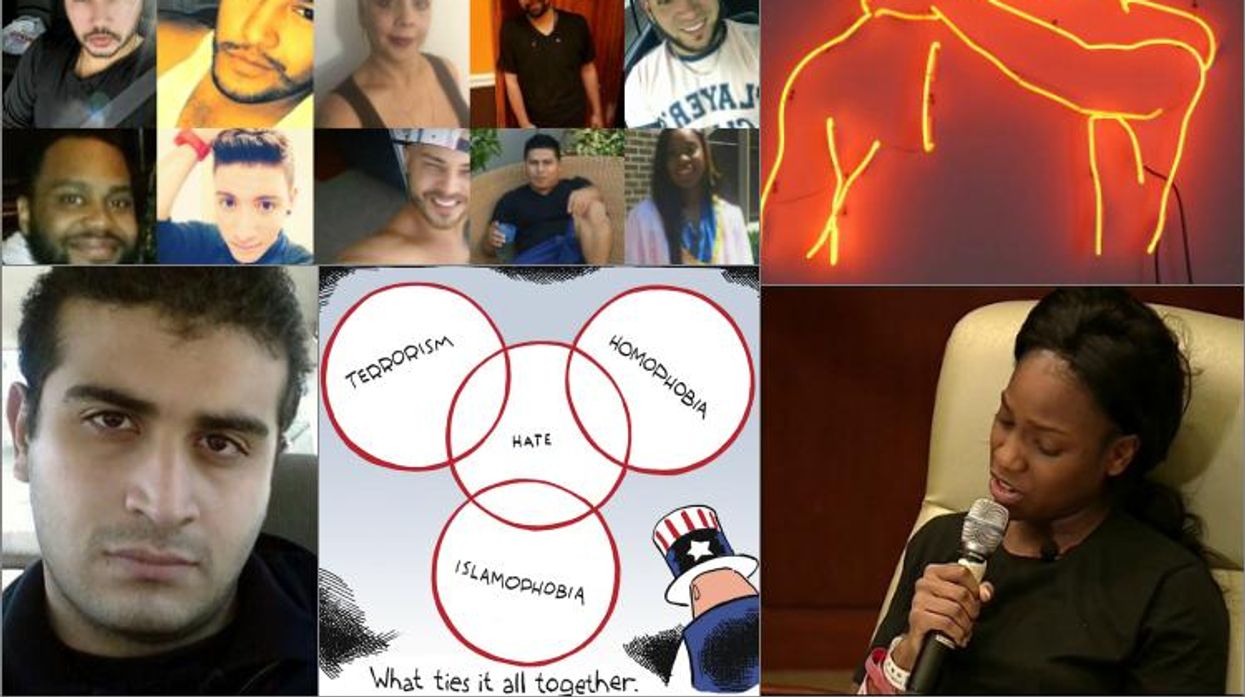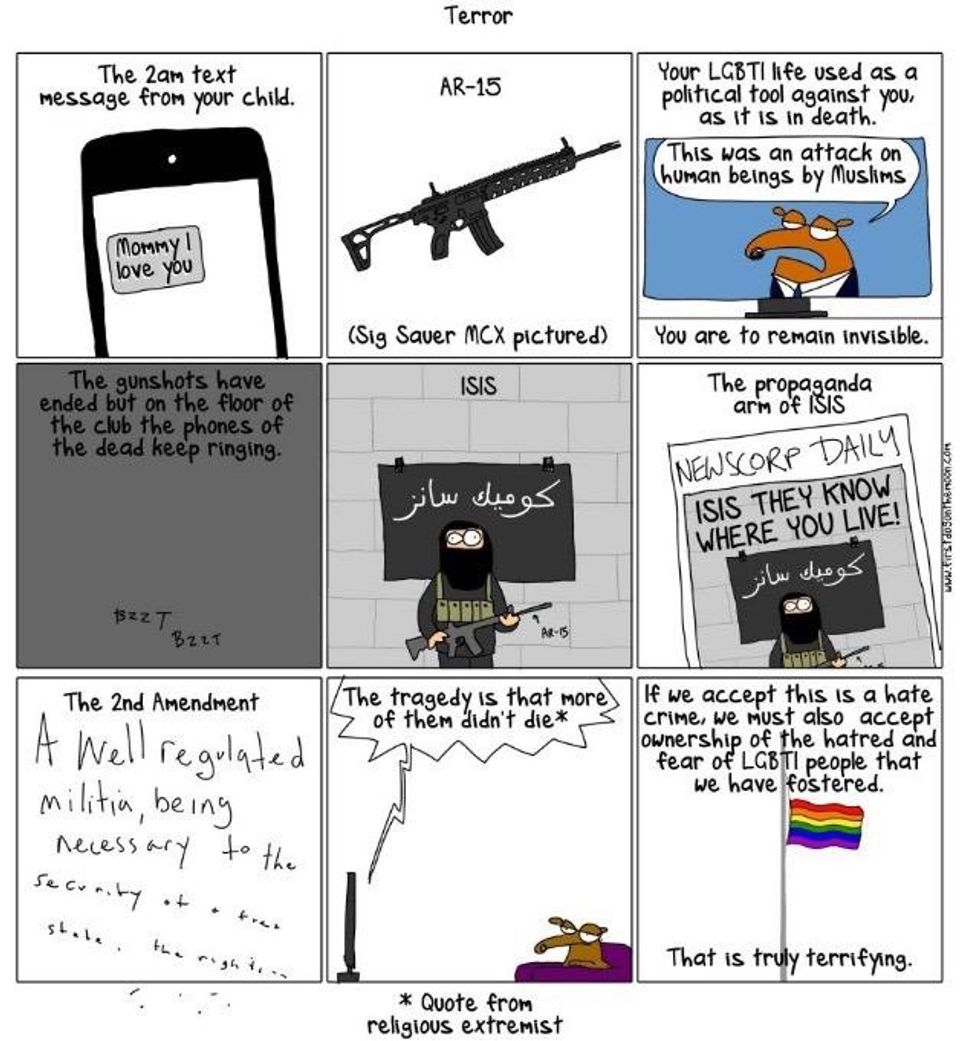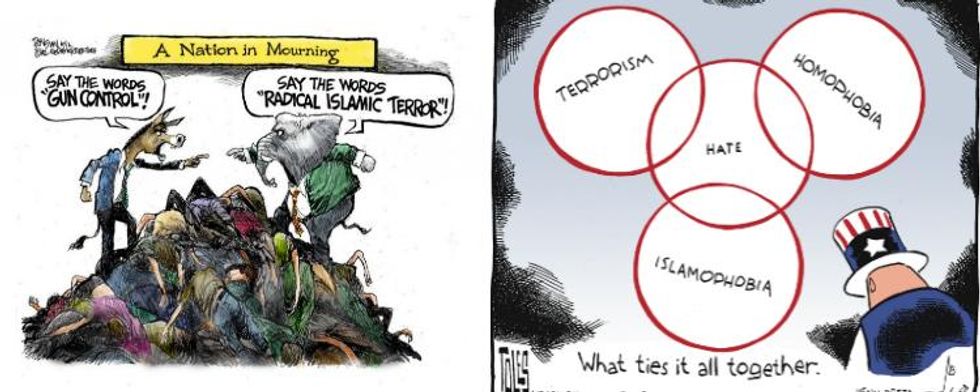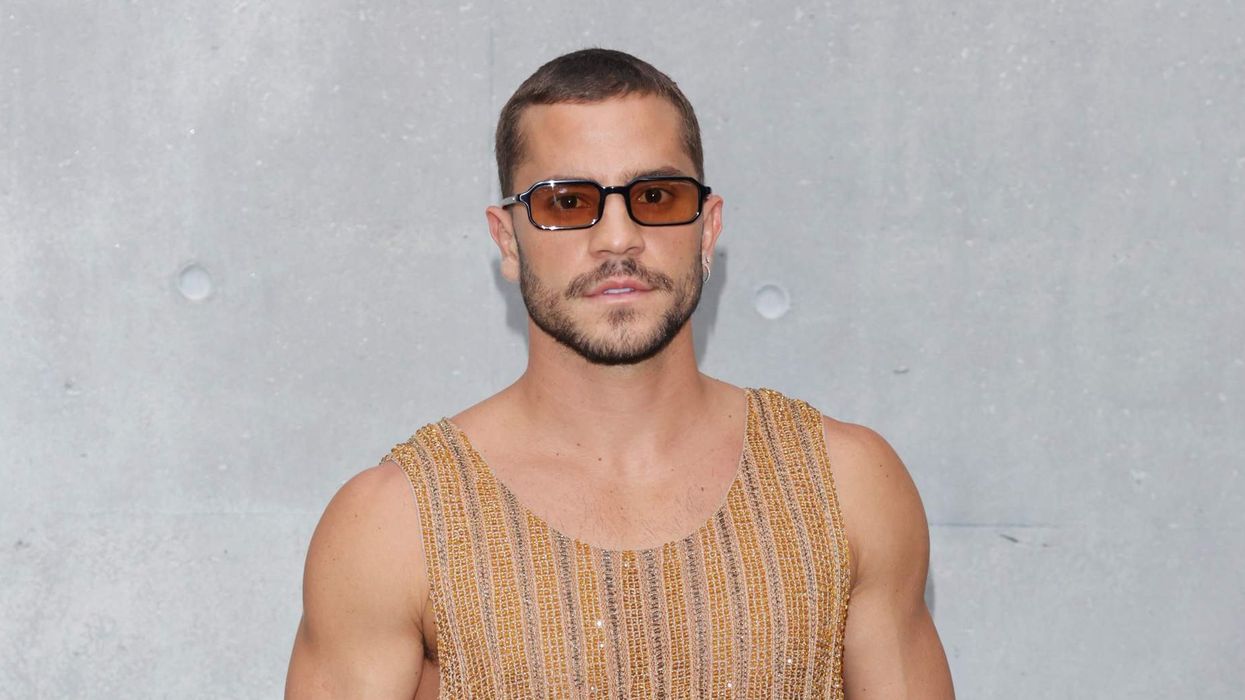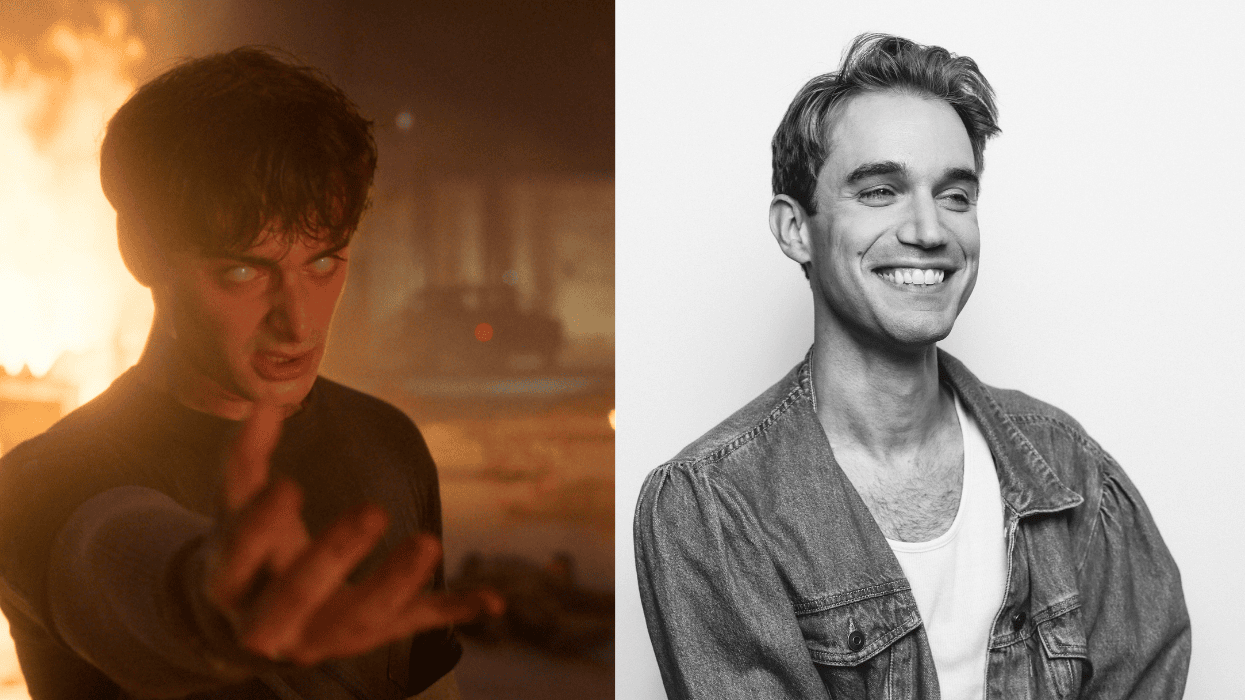The tragic killing of 49 people at the LGBT club Pulse in Orlando left the world in a state of shock.
While 53 victims remain in critical condition and are speaking up about the horrific attack, the voices of our community and leading writers around the world attempt to understand what led gunman Omar Mateen, a frequent user of gay dating apps and a regular at Pulse, to commit the worst mass shooting and anti-gay hate crime in US history.
Here, we gather the best writing to try to make sense of the Orlando shooting, gun control in Trump's America, and how the LGBTQ community is healing the wounds.
Queer & Latino
Early reactions to the Orlando attack were feelings of shock and disbelief. Most of the victims at Pulse belonged to the latino community. Out contributor Xorje Olivares penned a personal op-ed to claim his identity as an "out brown boy":
"I love knowing that these individuals chose to attend Pulse that night to unapologetically be themselves," Olivares writes, "and to relish in both their Latino and LGBT cultures the exact same way you and I have learned to do."
In The Washington Post, Justin Torres decided to praise the latino gay night as a sanctuary for the community: "For a moment, I want to talk about the sacredness of Latin Night at the Queer Club. Amid all the noise, I want to close my eyes and see you all there, dancing, inviolable, free."
A Gay Killer?
Speculations on the gunman's sexuality have made the Orlando shooting a particular case. After news emerged that Mateen had been using Grindr and frequented Pulse before the shooting, The Guardian's David Shariatmadari pointed out that the attack could be motivated by self-hatred rather than the consequence of a pledge to radical Islam: "If Mateen felt conflicted about his interest in gay men, it could have been because he believed his faith would condemn him for it," he writes. "There's no easy answer to this."
TIME looked at similar events claimed by ISIS, specifically the assault on the Bataclan concert venue in Paris last November, when 130 people lost their lives to similar assault techniques. While a direct link between the Orlando shooting and the Islamic State has since been downplayed by Barack Obama, Mateen may have used those events as inspiration, and seemed to have orchestrated the Pulse attack by "the ISIS playbook," TIME reports.
Trump's America
In this election year, The Pulse tragedy has forced republicans such as Mitt Romney, Paul Ryan, and Donald Trump to express unprecedented "solidarity" (to use Trump's word) for the LGBT community. In his piece for The New York Times, Frank Bruni urges those right-wing leaders to finally "stand with us."
The democrats revived the debate on gun control laws and the Second Amendment, but also about the sudden rise in hate crimes, homophobia, and islamophobia in Europe and America. "It is poisonous to blame all the world's 1.6 billion Muslims for this crisis of their religion," NYT columnist Roger Cohen writes. "Trump's self-congratulatory reiteration of his call for a temporary ban on non-American Muslims entering the United States exemplifies his violence-tinged politics of division."
Orlando happening during Pride month, and days before the first anniversary of DOMA's repeal, has hit the community hard. Queer muslims responded to the rising anti-islamic sentiment by asking to look at the wider picture on a global crisis, one that our (future) leaders need to address. The Advocate's Drew Kiser met with LGBT muslims and asked them about how they feel living in today's America:
"If America looks inward before it points the finger abroad, we might find answers to help us end violence against LGBT people," Kiser writes, "or reconciling a culture of inclusion with a desire to protect Americans from terrorism."
Cartoons
The Guardian's First Dog on the Moon sums up the theat of global terror in nine frames:
Click here to see the full size cartoon (Courtesy of The Guardian)
In addition, The Washington Post put together the 15 most political cartoons inspired by the shooting.
Left: Steve Benson for Arizona Republic; Tom Toles for The Washington Post
Standing United
The first survivors are now speaking about about their ordeal at Pulse and what they witnessed. Twenty-year old Patience Carter talked about how her night "went from having the time of our lives to the worst night of our lives in a matter of minutes," in a harrowing testimony from the Florida Hospital Orlando.
In his piece "Please Don't Stop The Music," The Nation columnist Richard Kim calls for unity and strength to overcome this tragedy: "He (Mateen) took the dark, the loudness, the density, the chaos of the dance floor--and he made them his accomplices in what is the largest mass shooting in this nation's history," Kim writes. "But he does not own these things, and his desecration cannot defeat us. This next week is going to suck hard--but we must remember that our joy is its own purpose; it is a higher calling."
Finally, The L.A. Times showcased the many Orlando tributes around the world. Echoeing of the global outpour of support, our sister publication, The Advocate, published a video to encourage the LGBTQ community and its allies to show their pride at their local march this month, and stand together unafraid.
RELATED The Advocate's Brief History of Anti-LGBT Violence
Top collage (clockwise, from bottom left): Omar Mateen; portraits of Pulse nightclub victims; artwork by Hernan Marina (via The Nation); gunshot survivor Patience Carter; political cartoon in The Washington Post.


